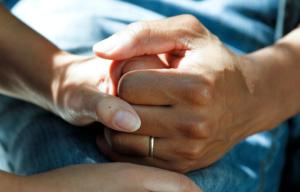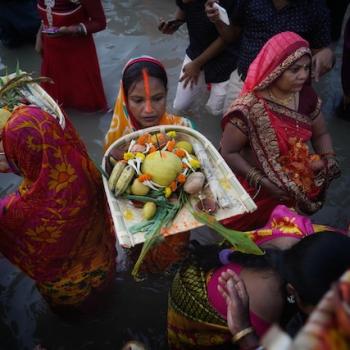
National Cancer Institute / Unsplash
Everyone deserves health care that aligns with their foundational beliefs. When someone’s life is nearing its conclusion, they should get end-of-life care that compassionately considers their religion and traditions. Here’s what it means to provide palliative care from an Islamic perspective to better understand what it means to Muslim physicians and patients.
What Is End-of-Life Care?
Although death can come suddenly in tragic moments, it also arrives slowly for many people. When that happens, they often receive end-of-life care to make their final days, weeks or months more comfortable.
End-of-care medical providers care for people while their bodily function slowly diminishes and their cognitive function declines. This may happen when the patient is sick but can also occur after heart attacks, strokes or falls.
Four levels of end-of-life care help patients and family members identify how long they likely have together. These stages include:
- Hospice home care: Patients live in their homes alongside family members and have manageable symptoms
- Continuous hospice home care: A hospice provider remains at the patient’s home at all times to manage acute symptoms
- Inpatient hospice care: A patient receives 24/7 monitoring at a hospice facility due to actual symptoms and wavering health stability
- Respite care: A patient receives 24/7 monitoring at a hospice facility for a short period to relieve caregivers and help them avoid burnout
A person at the end of their life may receive any of the following services to remain comfortable:
- Physical services (pain medications, IV fluids, dietary supplements)
- Personal care assistance (assisted bathing, meal preparation, hygiene, dressing)
- Spiritual mentoring (visitation from their religious leaders or mentors)
What Is Palliative Care?
Palliative care is slightly different from end-of-life care. It’s the stage before someone is officially dying. They receive continual support and medical treatment and can also try remedies to slow or cure their illness.
This care may last months or years, depending on the patient’s prognosis. End-of-life care may only last for a few weeks or months at best.
Outpatient palliative care clinics exist for patients who need more continual monitoring, but it can also happen at nursing homes, hospitals or homes. It depends on what insurance covers and what someone prefers.
Palliative Care From an Islamic Perspective
When Muslim patients begin palliative care, their daily lives might look different than the routines of others. These are the primary ways the Islamic religion affects their palliative or end-of-life care.
Family Involvement
A person’s end-of-life care almost always involves at least one extended family member. They might give an adult child or relative the medical power of attorney to make decisions in their best interest.
For example, Islamic beliefs highly prioritize modesty. Since palliative care includes services like bathing and dressing, a family member would know to advocate for a medical provider of the same gender as their loved one.
Family members might also manage their loved one’s visitor’s log. Visiting and caring for the sick is one of the core moral principles of Islamic belief. Hadith 114, Book 27 states, “Whoever visits the sick, or visits his brother in Allah (faith) a caller calls out: ‘May you have goodness and livelihood be good, and may you dwell in an adobe in Paradise.”
Palliative Medications
Any medications that relieve symptoms are palliative. This can include prescriptions like opioids, but some Muslim patients may not take them frequently or at all. Some believe that suffering comes from sin, so they focus on atoning for their mistakes to accept or relieve their pain.
There’s also the aspect of sedation to consider. Patients undergoing sedation, even for quick dental procedures or dental anxiety, could miss one of the five Shahadah prayers throughout the day. People who practice this prayer ritual may avoid painkillers that could cause accidental or purposeful sedation.
Life-Sustaining Treatment Preferences
The most crucial thing to remember when learning about palliative care from an Islamic perspective is that every person will have different treatment preferences. The Quran and Sunnah don’t have specific teachings for this type of care. Patients will know what’s best for their needs, and their family members could speak on their behalf if necessary.
An Islamic chaplain could assist in making a treatment plan from a religious perspective. They might recommend that the patient’s bed faces Mecca so they can pray toward the house of God even if they can’t get out of bed.
A chaplain could also help patients clarify their wishes if they don’t have their imam or spiritual adviser. Someone well-versed in the Islamic faith might point out that someone has a do-not-resuscitate (DNR) order, but Chapter 6, Verse 151 of the Quran says, “Whether open or secret; take not life, which Allah hath made sacred, except by way of justice and law.” The patient might revoke their DNR so every possible intervention to save their life could happen in the case of their potential passing.
Life-sustaining treatment preferences should also recognize faith-based dietary laws. A patient might enjoy a breakfast wrap with eggs and no sausage since Islam forbids eating pork (Qur’an 5:3). The patient might also participate in Ramadan between March and April if their health conditions and doctor allow it.
Muslim Death Rituals
Eventually, patients receiving end-of-life care pass away. Muslim physicians may support their patients no matter where this happens. Muslim dying rituals in hospitals occur before and after the patient takes their last breath.
A chaplain or spiritual adviser could help the patient recite a declaration of faith known as the Shahadah or their preferred Quran verses. If possible, Muslim patients often request that their feet point toward Mecca at the time of their death and that non-Mulisms leave the room right before they pass.
Non-Muslim physicians must also wear gloves after the patient passes to bandage their jaw shut and straighten their limbs. At this point, the deceased patient awaits transport to the family’s home or preferred morgue for other Muslim dying rituals such as washing and recitations from the Quran.
End-of-Life Care Is Personal
Understanding palliative care from an Islamic perspective also requires a deeper knowledge of end-of-life care. Both are necessary forms of caring for people in their final days. Each patient should receive medical services that keep them comfortable and align with their religious preferences. Medical providers should provide affirming care and the highest quality of living before their passing.













